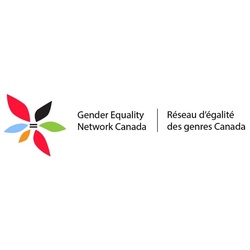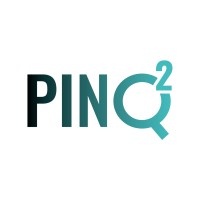
College and Community social innovation Fund
At a glance
- Maximum amount : 120,000 $
- Up to 50% of project cost
- Closing date : March 10, 2026
- Professional, scientific and technical services
- Educational services
- Health care and social assistance
- Public administration
- Canada
- All legal structures
- All revenue ranges
- All organization sizes
- Canadians
Overview
Your business can partner with college researchers who are eligible to apply for grants for social innovation projects that are conducted in partnership with public, private or not-for-profit sector organizations.
Activities funded
Yes, there are eligible projects and activities for this grant which aim to foster community innovation. These projects connect colleges' talents and facilities with the community's research needs, addressing challenges in various fields.
- Integration of vulnerable populations
- Community development
- Education and training
- Climate change
- Environmental degradation
- Health and well-being
Eligibility
Eligibility for this grant is determined by specific requirements related to the applicant's institutional profile and proposed research initiatives.
- The applicant must hold a remunerated position at an eligible Canadian college.
- The Canadian college must be eligible to administer grants according to the eligibility requirements of at least one of the three federal granting agencies (NSERC, CIHR, or SSHRC).
- If the proposed research activities lie entirely within the mandate of a single granting agency, the college must be declared eligible to receive funding from that granting agency.
- The college must offer programs in the humanities and social sciences, natural sciences and engineering, and/or health sciences.
- The college’s faculty members must be engaged in applied research related to the humanities and social sciences, natural sciences and engineering, and/or health sciences.
- The college must provide the necessary space, facilities, and services to support applied research by faculty members.
- A principal investigator must be identified and responsible for the intellectual direction of the research and must be affiliated with the administering institution at the time of application.
- The principal investigator must be qualified to undertake the proposed research independently.
- Each college can submit a maximum of five applications per competition, with different principal investigators leading each proposal.
Who is eligible?
CCSIF grants are intended for Canadian colleges eligible to administer grants according to the requirements of one of the federal granting agencies (NSERC, CIHR, or SSHRC). The applicant must hold a remunerated position at such an eligible college and be responsible for managing the grant. The college should offer programs in relevant fields such as humanities, social sciences, natural sciences, engineering, or health sciences, and have faculty engaged in applied research in these areas. Moreover, the principal investigator, who leads the research project, must be affiliated with the administering college and qualified to conduct the research independently. Each institution can submit up to five applications per competition, with each application led by a different principal investigator.Who is not eligible
This grant is specifically designed for eligible Canadian colleges and their collaborative projects, thus restricting certain entities from applying. The focus is on academic and community partnerships rather than individual companies or industries.
Eligible expenses
CCSIF grants support projects that foster community innovation by leveraging the expertise and resources of Canadian colleges in collaboration with community organizations. These projects are cross-disciplinary and address pressing issues in various sectors to drive positive social change.
- Research initiatives aiming to integrate vulnerable populations into communities.
- Projects focused on community development and empowerment.
- Educational and training initiatives that meet community needs.
- Research on climate change and strategies to combat environmental degradation.
- Health and well-being projects addressing community-specific challenges.
- Collaborative research involving students, faculty, and community partners to solve local problems.
Eligible geographic areas
The grant covers specific expenses directly related to the collaborative research initiatives in college and community innovation.
- Compensation for faculty, research staff, and students involved in the project.
- Costs for materials, supplies, and project-specific consumables.
- Travel expenses for project activities and collaboration between partners.
- Equipment purchases or rental necessary for research activities.
- Dissemination and knowledge mobilization costs to share project outcomes with the community.
- Administrative costs related to the management of the project.
Selection criteria
Yes, there are evaluation and selection criteria for the CCSIF grant. The proposals are evaluated based on criteria such as potential impact on the community, quality of the applied research, and capacity of the college to deliver the project.
- Relevance of the proposed research to community needs
- Potential for tangible benefits and impact on the community
- Quality of the research methodology and innovation
- Involvement and engagement of students in the research activities
- Capacity and capability of the college to deliver the proposed project
- Collaboration with community organizations and partners
- Sustainability of the project outcomes beyond the funding period
- Budget justification and efficient use of resources
How to apply
Create an Account in the Convergence Portal
- Access the Convergence Portal and create or log in to your account.
- Ensure your college is among those eligible to apply for the CCSIF grant.
Prepare the Grant Application
- Carefully read the Instructions for completing a CCSIF grant application.
- Develop a research proposal that aligns with the objectives of the CCSIF grant.
- Ensure the proposal facilitates collaborative and innovative research that addresses community innovation challenges.
- Identify and confirm the involvement of a principal investigator responsible for the intellectual direction of the project.
- Collect necessary documentation, such as letters of support from community partners.
Complete the Application Form
- Log into the Convergence Portal to access and fill out the application form.
- Input all required information accurately, ensuring compliance with eligibility guidelines.
Review and Submit the Application
- Thoroughly review the completed application form to check for any errors or omissions.
- Ensure all required documents are attached and comply with the guidelines provided.
- Submit the application through the Convergence Portal before the deadline.
- Save a copy of the submission confirmation and application reference number for future reference.
Additional information
Here are additional relevant details for this grant:
- The detailed application guide and specific requirements for CCSIF grants can be found in the Convergence Portal user guide.
- The research proposal should demonstrate a clear plan for sustaining the community partnerships beyond the funding period.
- Institutions are encouraged to include strategies for knowledge mobilization and engagement with community stakeholders.
- The application should highlight the anticipated benefits and impact of the project on the community.
- Institutions should ensure that their financial management systems align with the Tri-agency Guide on Financial Administration policies.
Frequently Asked Questions about the College and Community social innovation Fund Program
What is the College and Community social innovation Fund?
How much funding can be received?
Who is eligible for the College and Community social innovation Fund program?
What expenses are eligible under College and Community social innovation Fund?
Who can I contact for more information about the College and Community social innovation Fund?
Where is the College and Community social innovation Fund available?
Is the College and Community social innovation Fund a grant, loan, or tax credit?
More programs like this

Industrial Research Assistance Program (IRAP) – AI Assist
National Research Council Canada (NRC)
Mitacs Accelerate
Mitacs
ISED — Artificial intelligence (AI)
Innovation, Science and Economic Development Canada (ISED)
Equality for Sex, Sexual Orientation, Gender Identity and Expression Program
Women and Gender Equality Canada (WAGE)
Crime Prevention Action Fund (CPAF)
Public Safety Canada (PSC)
Substance Use and Addictions Program (SUAP)
Health Canada
Rail Safety Improvement Program (RSIP) - Research and Education Component
Transport Canada (TC)
Enhanced Road Safety Transfer Payment Program (ERSTPP)
Transport Canada (TC)
Age Well at Home (AWAH) - In-Home Support Pilot Project Stream
Employment and Social Development Canada (ESDC)